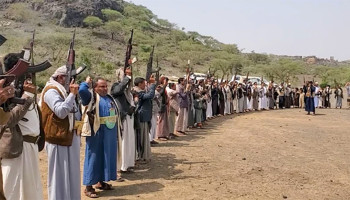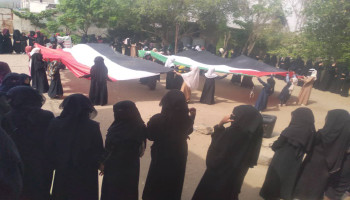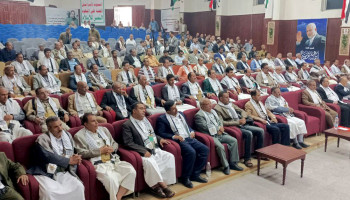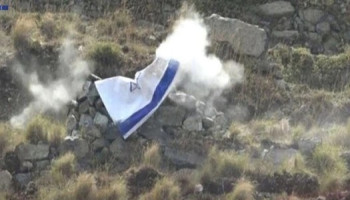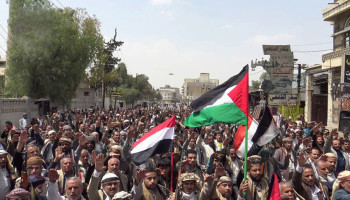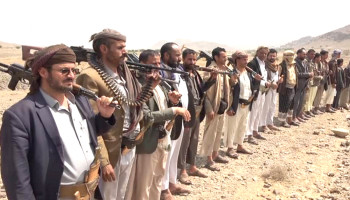Military and strategic expert Major General Mohammed Ali Al-Samadi stated that the Yemeni missile strike targeting Lod Airport (Ben Gurion) represents a significant escalation in the battle strategy.
In an interview with Al-Masirah TV, he described it as a troubling test of the Israeli enemy’s air defense capabilities and a dual blow to both its interception systems and economic stability, noting the use of multi-warhead missiles and advanced jamming technology.
Al-Samadi highlighted that despite Israel’s false claims, video footage showing smoke rising from the airport confirms the strike’s success.
He pointed out that Israeli sources admitted to launching over six interceptor missiles, well above the usual two to four, suggesting that the Yemeni missile was highly advanced, possibly carrying multiple warheads.
This raised fear among the Israeli population and exhausted their air defense systems and economy. The varied timing of Yemeni missile launches, at dawn, noon, evening, and night, has also generated ongoing panic across "Israel."
Al-Samadi added that the missile's proximity to a passenger aircraft taking off from Lod Airport will likely force airlines to avoid flying there until the aggression on Gaza ends. He emphasized that the Israeli entity is in severe pain but seeks to downplay Yemen’s growing military achievements, even as its air traffic halts and settlers flee to shelters daily, driving mounting economic losses.
He further explained that when Yemeni missiles are launched, air and transport activity in occupied Jaffa (Tel Aviv) comes to a halt, worsening the already struggling Israeli economy.
Regarding the Israeli response, Al-Samadi confirmed that the enemy launched an attack on Hodeidah Port using naval vessels and missiles fired from warships or submarines based at the Israeli military base in Eritrea, located roughly 300 km from Hodeidah and 444 km from Taiz.
He said Israel’s reliance on naval attacks shows its fear of losing aircraft, especially after US reports indicated that Yemen nearly downed an F-35 fighter jet—making air campaigns against Yemen extremely costly.
Despite Israeli escalation, Yemeni missiles and drones continue to strike targets deep within occupied Palestine.


